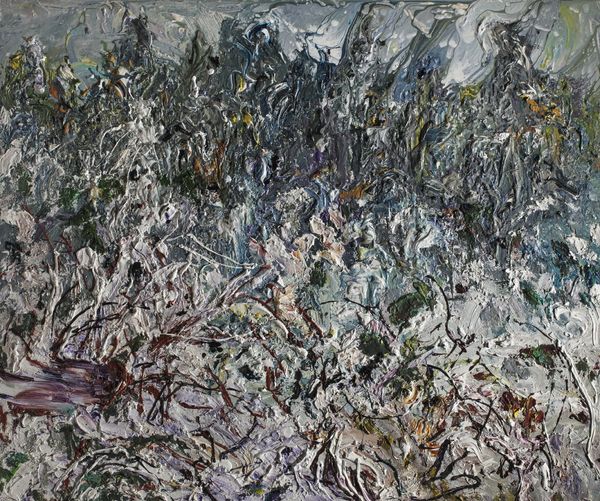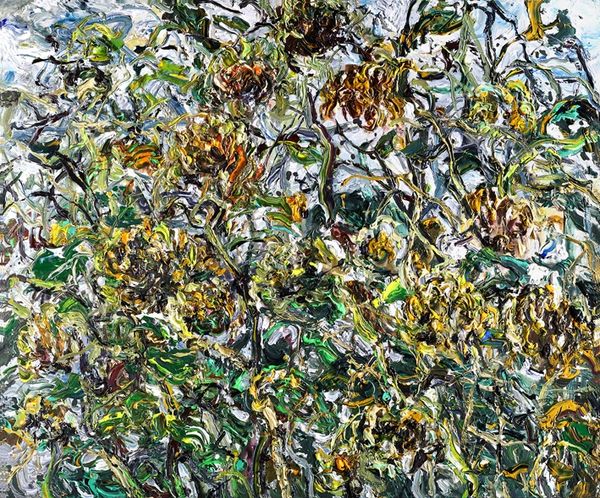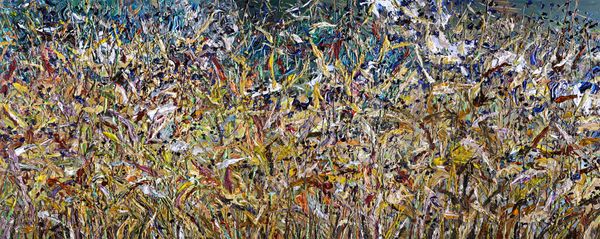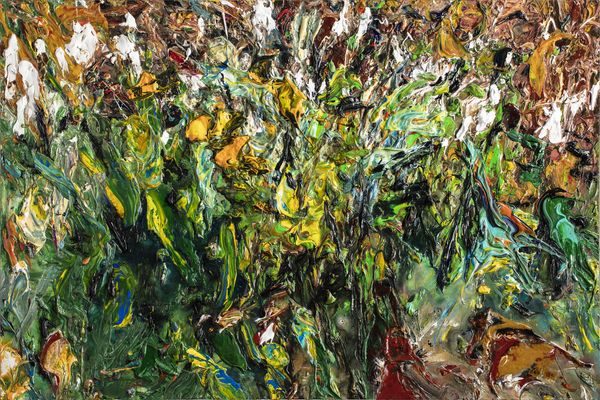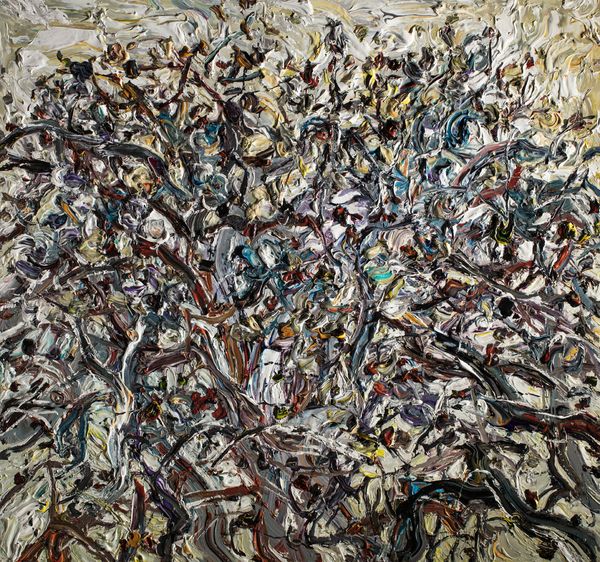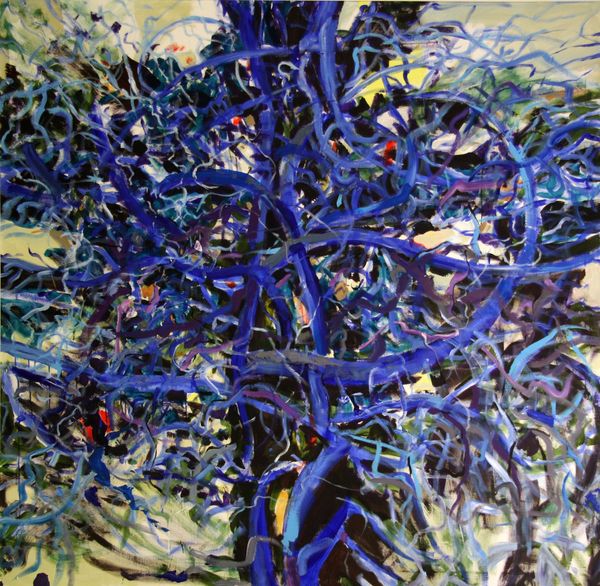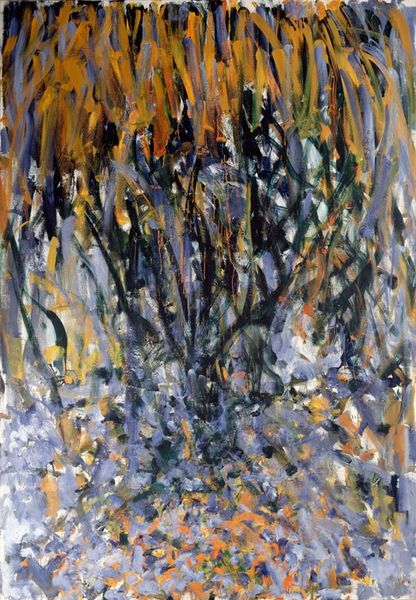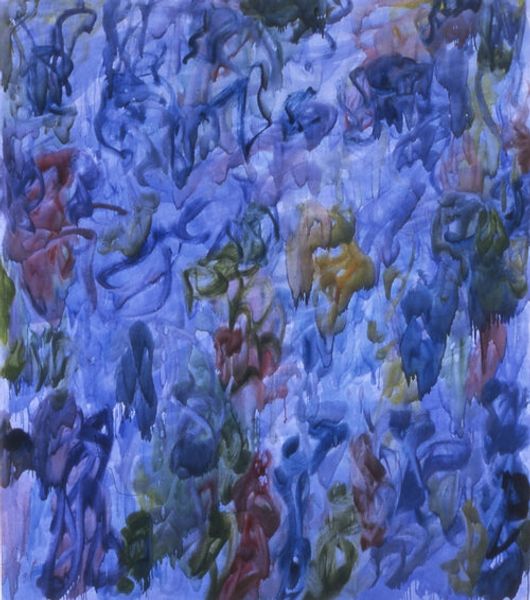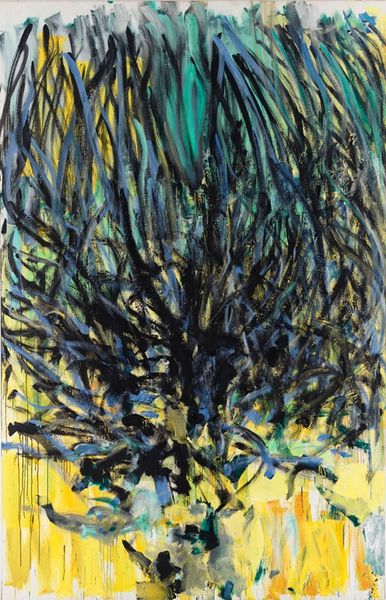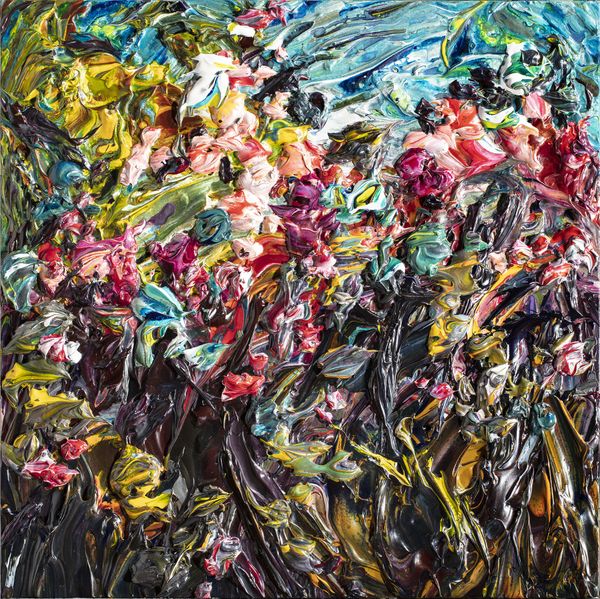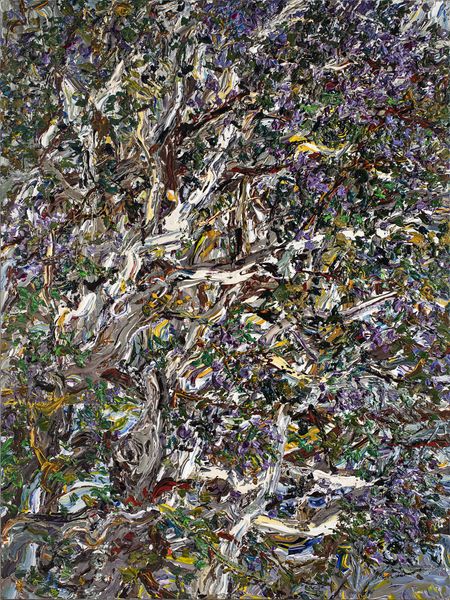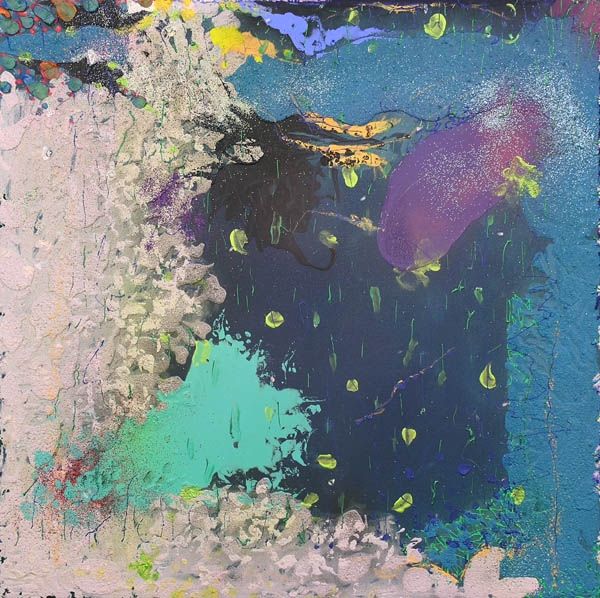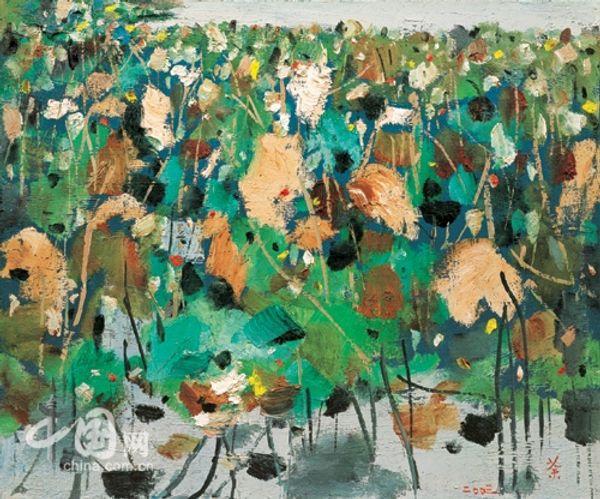
Copyright: ARTERA: FROM ARTIST
Curator: This is Wang Xinbo’s “Jewel Blue Point,” painted in 2019. It’s quite a striking example of matter painting. Editor: It definitely has a raw, almost primal feel to it. The thick impasto gives it an incredible texture – like looking at the surface of another planet. I imagine the process of making this was very physical. Curator: Indeed. Xinbo’s artistic approach centers on material exploration, especially with acrylic paints, and pushing the boundaries of what painting can be. It's less about representation and more about the inherent qualities of the materials themselves and, of course, what kind of social commentary can arise from its inherent abstract nature. Editor: From a historical perspective, this feels connected to movements that challenged the traditional art world. Abstract expressionism and matter painting, movements of the last century, sought new ways to capture emotion and meaning outside the establishment and the elite. And you see that history in a painting like this. The intense physicality feels radical. Curator: Absolutely, this is not a painting for the faint of heart. Consider the interplay of light and shadow created by the heavy application of paint. Each daub is a deliberate mark, and it collectively creates an almost topographic map. There are echoes of landscape within the non-representational form, don’t you think? Editor: I do. In that respect, this work perhaps speaks to the commodification of landscape within the artistic historical canon. Also, it could be a reflection of a rapidly changing urban landscape that impacts culture and how we view our history. This kind of deconstruction can create new cultural contexts and open dialogue around modern sensibilities. Curator: The application of this thick impasto creates depth, yes, but its presence seems defiant as it eschews painting as illusion, as representation. I am more inclined to believe the emphasis is not on art as a lens or mirror for viewing the world, but rather something to grapple with—laborious, tactile, and visceral. Editor: It will be fascinating to watch its place in the historical record and its effect on modern artistic discourse as new artistic evolutions challenge its form. Curator: The artist's process and material focus challenge the viewer. Wang Xinbo invites us to consider the very nature of the creative process itself, how materials take form, and whether social context or the artist's intent matter at all. Editor: A powerful, defiant piece. One that invites reflection on art’s place and evolution within our collective culture.
Comments
No comments
Be the first to comment and join the conversation on the ultimate creative platform.
